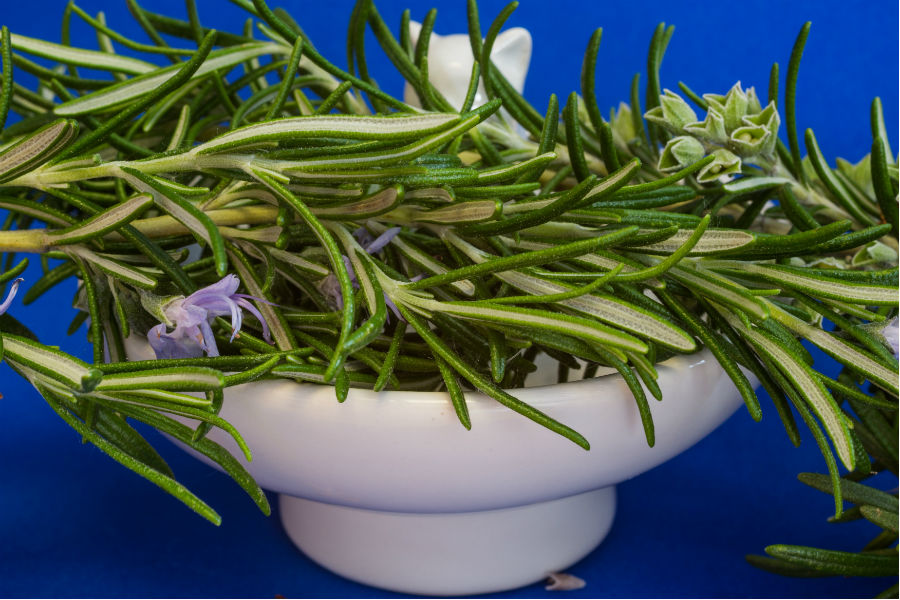The Healing Properties of Cypriot Herbal Teas
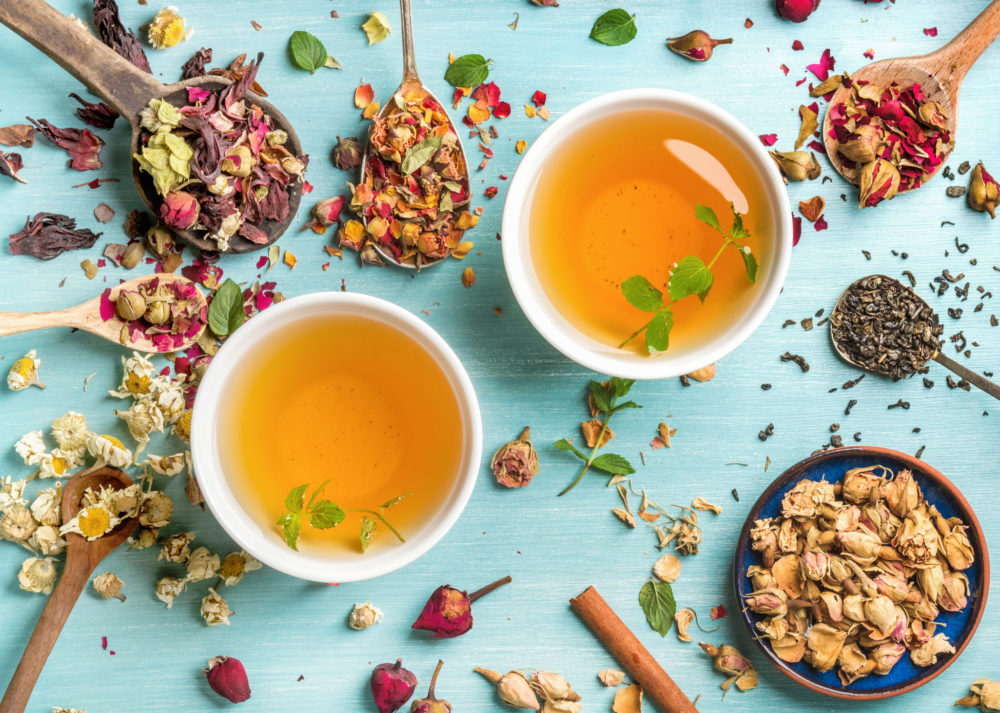
Cypriots love their herbs and spices. In fact, they are the basis of the local cuisine and very often the secret ingredients that give these dishes that special touch. Besides using herbs in food, we love to brew them as teas for their unique health benefits.
Our grandmothers all have a remedy based on herbs and plants for when we’re feeling unwell, and a lot of people depend on the healing abilities of local herbs as a curative or to maintain their health. Caffeine-free and natural, all you need to do is to let them steep in hot water for about three to five minutes. Curious to discover what they are? Read on!
Anise
Anise is a very popular herbal tea on the island, especially recommended for sore throats and coughing because it can help get rid of any excess throat mucous. It can also help calm stomach problems such as flatulence, nausea and cramping. Besides soothing digestion, anise is known to regulate sleep, so it’s ideal for any night owls who need to rest their eyes. Anise tea is made from the seeds of the plant and has quite a liquorice flavour.
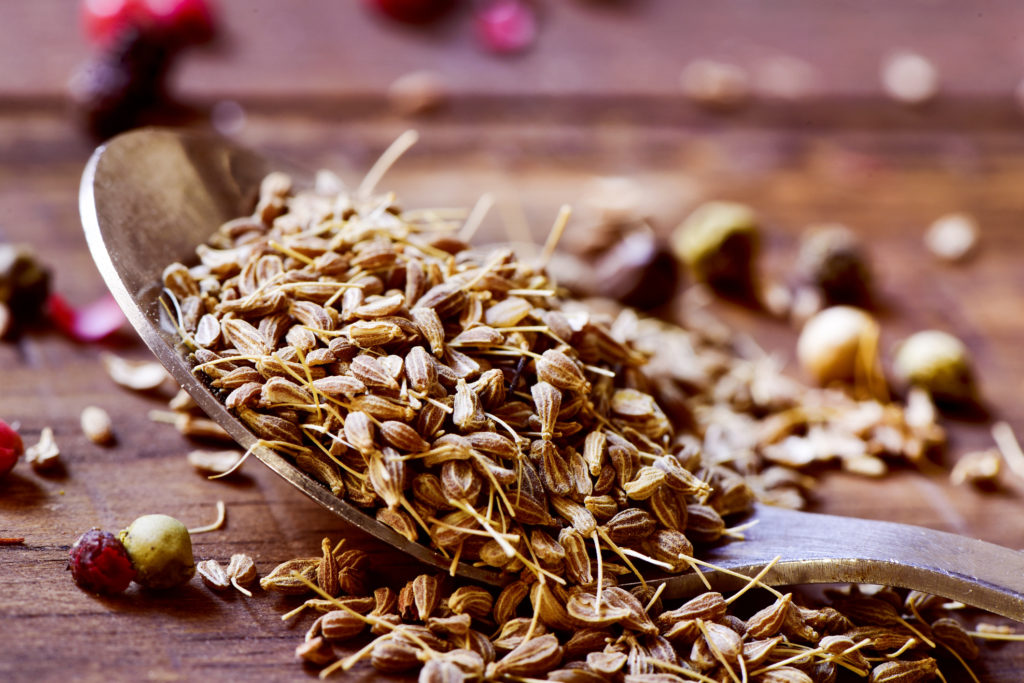
Aspoon full of anise seeds
Chamomile
A universally known herb that helps fellow plants, the animals that eat it, and us humans. The ancient Greek doctor Hippocrates was one of the first individuals to identify its healing properties. Deriving from a flower that’s often mistaken for a daisy, one way to distinguish them is by smell: Daisies are odourless whereas chamomile flowers have a strong smell. It is mostly known to relieve anxiety and insomnia, so it’s recommended to consume it in the evening. It can also help with a cold, flu, nerves, dyspepsia, migraine, neuralgia, dizziness, stomach aches, rheumatism, stress, menstrual pain, urinary infection, ulcerations and pains in the intestines. For baggy eyes or dark circles, you can place bags of chamomile on your closed eyelids to soothe the puffiness.
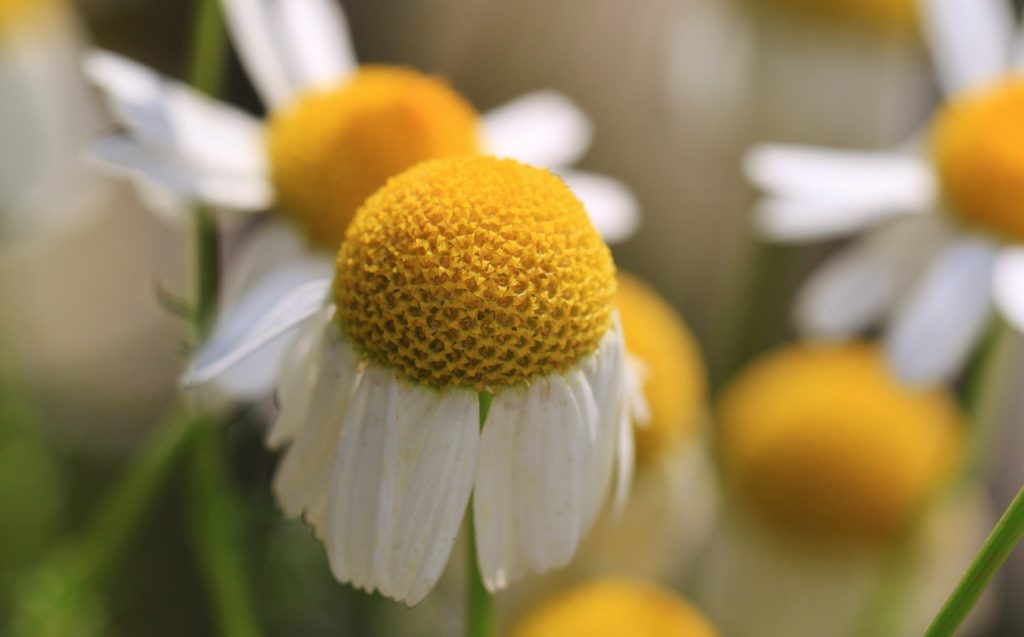
Chamomile flowers
Lemon Verbena
You’ll find this under its Cypriot name ‘alouiza’ in supermarkets and cafés; it is often drunk with a slice of lemon and a teaspoon of honey. A calming beverage, it helps ease a feverish cold and asthma and relaxes muscles. If you’re suffering from irritable bowel syndrome, have some alouiza tea half an hour before your meal to help with digestion; it can also help with losing weight.
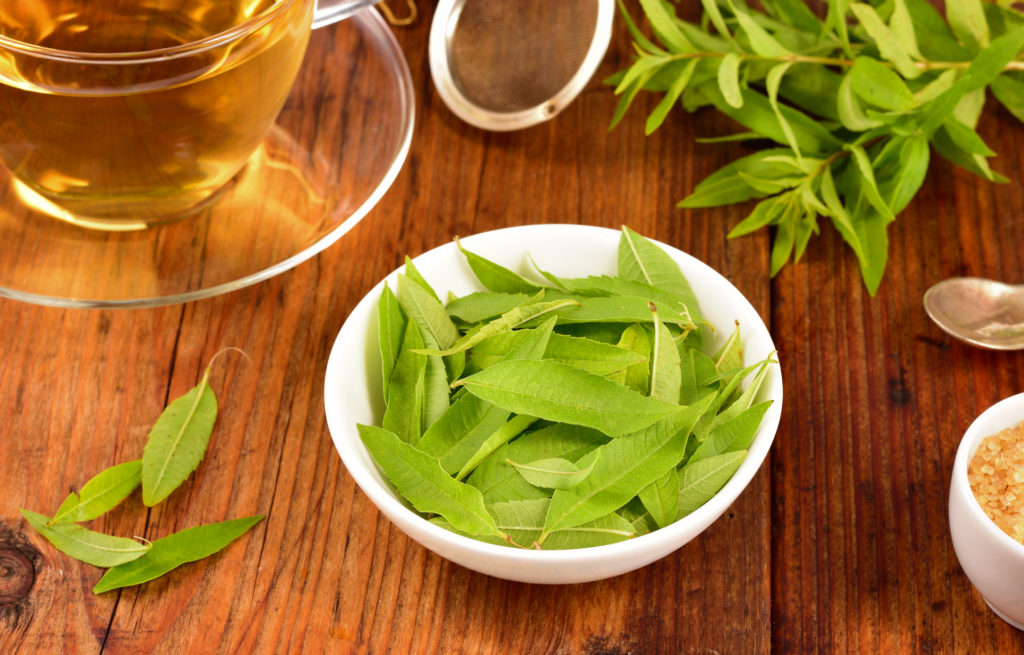
Fresh, loose alouisa tea
Mint
Also known as spearmint or peppermint, this tea has a variety of health benefits, from treating migraines to stopping diarrhoea and soothing upset stomachs. Mint tea is also really good for treating sinus infections; this is even more true for mint oil. Rubbing some mint oil on the chest or inhaling it through a vaporizer helps unblock nasal congestion.
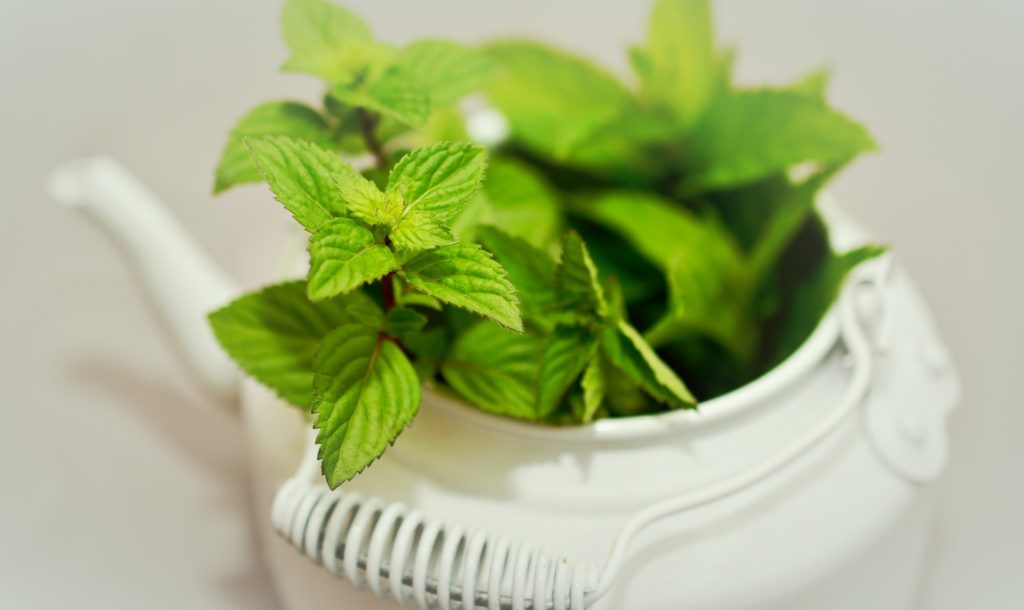
Pepermint leaves brewing
Nettle
High in vitamins C, K and pro-vitamin A, nettle tea is much less aggressive than the plant which can cause allergic reactions and can give a burning sensation to many people. Nettle tea contains formic acid, potassium, iron, calcium and nitrogen, and along with its vitamins, it can treat bronchitis and decrease sugar levels in diabetics. Nettle oil can even help those with alopecia, vitalize embryos and soothe menopause.
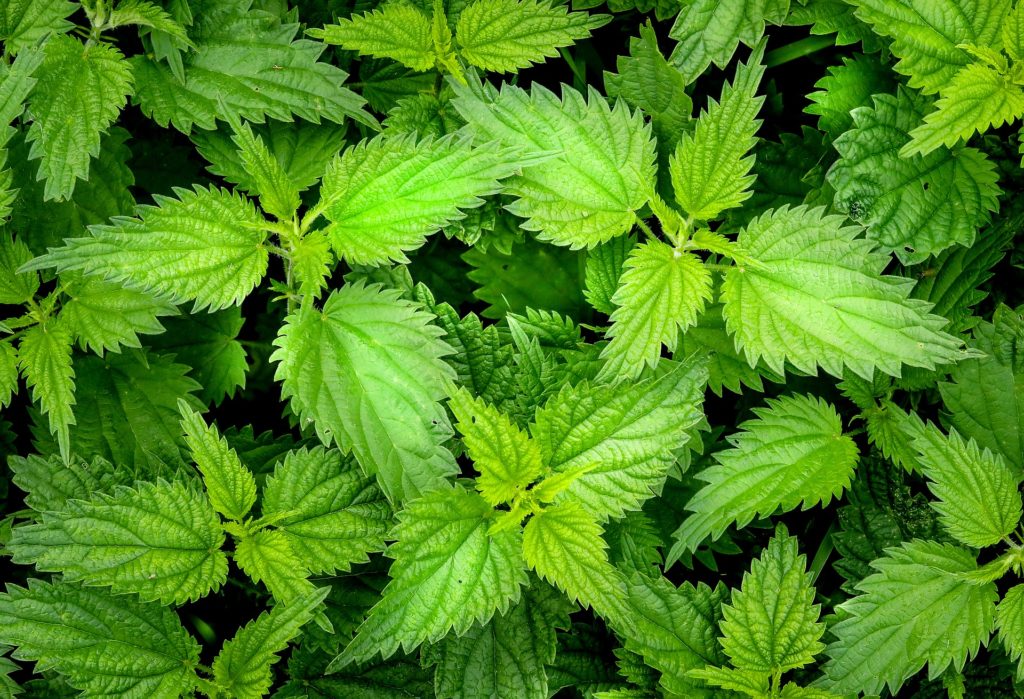
Similar to mint, nettle leaves have pointer edges
Sideritis/Mountain Tea
You might hear this tea also referred to as the ‘Shepherds’ tea’ since Greek shepherds would brew mountain plants in hot water while walking their flock. The tea is made from a blend of dried flowers and stems of the sideritis plant which grows on rocky hills. Its name relates to sidero, the Greek word for iron andmountain tea has been used to treat wounds since ancient times, as well as for colds, aches, allergies, indigestion, respiratory issues and to boost the immune system. The flavour can be a bit bitter, so only brew it for three to four minutes, adding honey if you wish. Recent studies have shown that the tea is full of antioxidants which are extremely beneficial to our health.
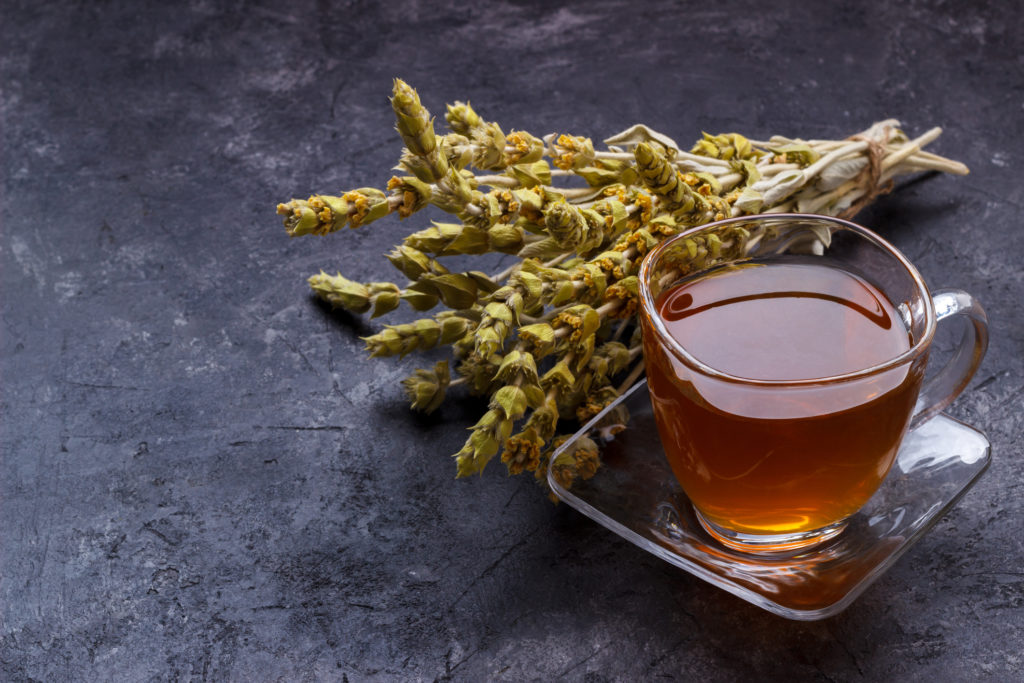
The soothing Sideritis/Mountain tea.
Lavender
Most people love the smell of lavender, and many put a bag of lavender in their closet to prevent moths getting to their clothes. Cypriots take advantage of the lavender fields that bloom in spring and summer by creating a soothing tea out of the flowers. As a boost to the nervous system, it balances the mood, calms depression and insomnia, kills bacteria and relieves pain. If you’re brewing loose lavender, only add about half a teaspoon – too much will give your tea a bitter taste.
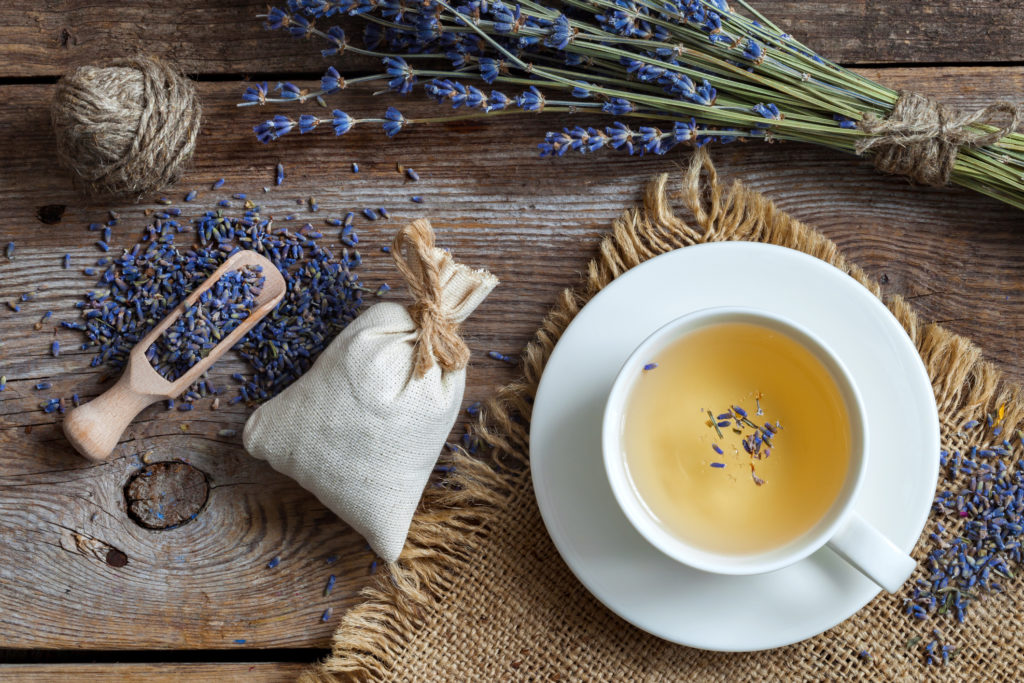
Bunch of lavender flowers, sachets filled with dried lavender and healthy tea.
Calendula
This bright orange/yellow flower, also known as marigold, grows in the Mediterranean region and is piled with powerful skin-healing, anti-inflammatory and antimicrobial properties. Calendula tea treats inflammatory diseases, gastric ulcers and constipation, so it’s great for those with sensitive stomachs. Women with strong PMS can have a cup of calendula to soothe their premenstrual/menstrual pains. Also, using it as a mouthwash or gargling it can aid gum and teeth infections, sore throats and tonsillitis.
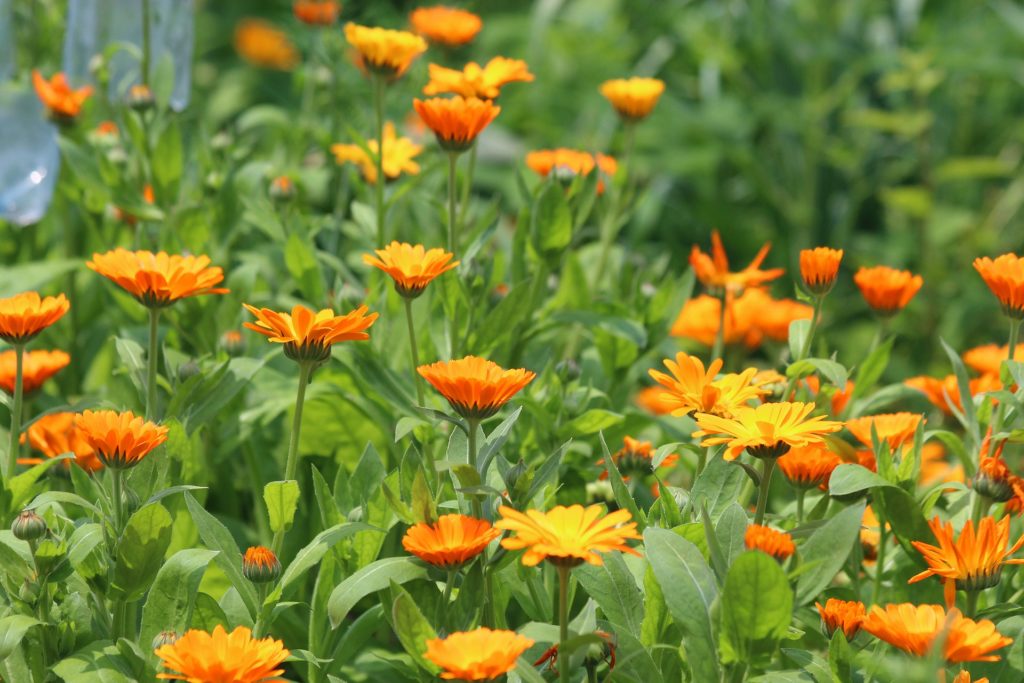
Calendula flowers

